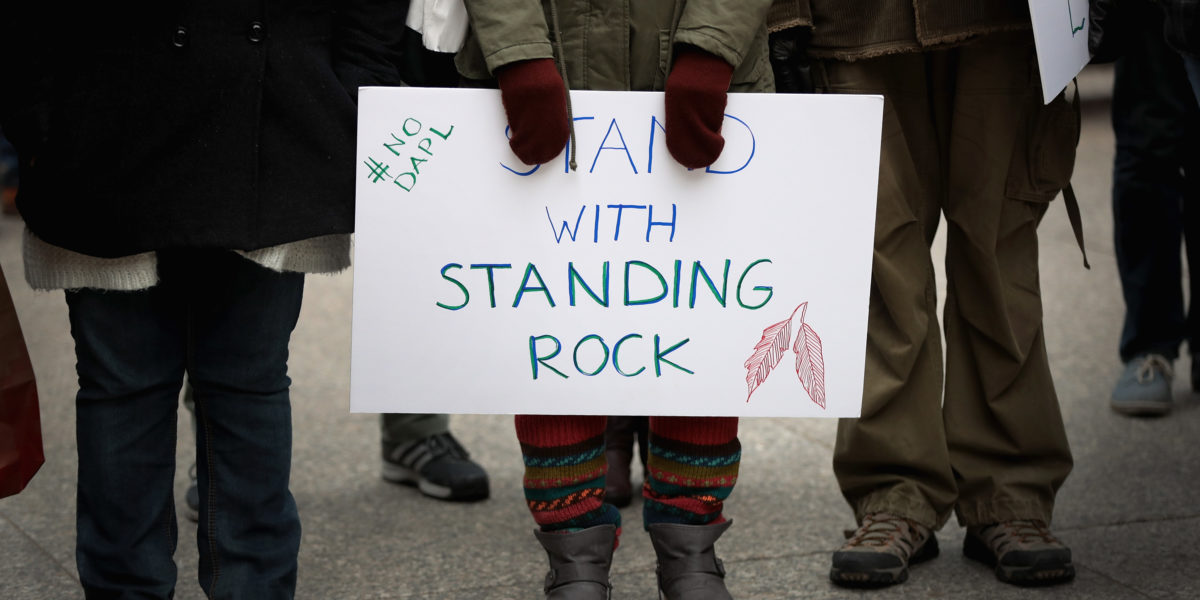
Judge Orders Dakota Access Pipeline to Shut Down in Win for Standing Rock Sioux
Native Americans and environmental groups have spoken out against the pipeline for four years.

Scott Olson/Getty Images
A federal judge provided members of the Standing Rock Sioux tribe with a significant victory this week when he upheld the order to postpone the operation of the long-protested Dakota Access Pipeline.
Native Americans and environmental groups speaking against the pipeline first gained momentum in March, when courts ordered the U.S. Army Corps of Engineers to conduct a thorough analysis on potential environmental detriments resulting from the $3.8 billion, 1,172-mile pipeline.
U.S. District Judge James Boasberg called the review “highly controversial” when it yielded a decision to approve federal permits while failing to address glaring risks—such as oil spills—associated with the pipeline’s operation.
In response Boasberg ordered the pipeline to be shut down and emptied while the Army conducts a more extensive evaluation of risks to its surrounding areas. One section of pipeline adjacent to the Standing Rock Reservation, for example, flows under the Missouri River, a primary water source for the tribe.
“Today is a historic day for the Standing Rock Sioux Tribe and the many people who have supported us in the fight against the pipeline,” Standing Rock Chairman Mike Faith said in a release.
“This pipeline should have never been built here. We told them that from the beginning.”
Boasberg also rejected a request by Dakota Access attorneys to delay the shutdown after pipeline representation argued that such measures would be irreparably damaging to its operation.
In a statement to NPR Boasberg acknowledged emptying the pipeline would create significant interference for the operation, but claimed “the seriousness of the Corps’ deficiencies outweighs the negative effects of halting the oil flow.”
The Trump administration was quick to denounce Boasberg’s decision.
“It is disappointing that, once again, an energy infrastructure project that provides thousands of jobs and millions of dollars in economic revenue has been shut down by the well-funded environmental lobby, using our Nation’s court system to further their agenda,” U.S. Secretary of Energy Dan Brouillette said in a release.
Under the current order the pipeline, which began construction under heated protest approximately four years ago and facilitates 570,000 barrels of oil per day from North Dakota to Illinois, is to be completely halted by Aug. 5. When or if oil flow will eventually resume is yet to be determined.
“It took four long years, but today justice has been served at Standing Rock,” tribe representative and Earthjustice attorney Jan Hasselman said in a release.
“If the events of 2020 have taught us anything, it’s that health and justice must be prioritized early on in any decision-making process if we want to avoid a crisis later on.”
